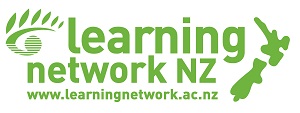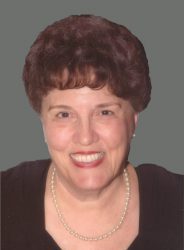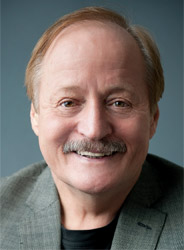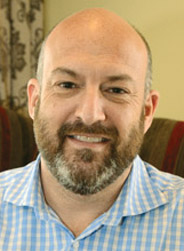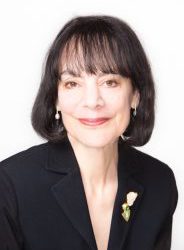Description
Carolyn is an internationally known speaker, author, trainer, consultant and educator. In her workshops, professional development courses, seminars and keynotes, she is an enthusiastic, motivating and energetic presenter. Carolyn works with teachers, parents and students offering practical strategies for raising student achievement, differentiating curriculum, implementing a variety of assessment strategies, and dealing with the problems and challenges associated with preparing ourselves and our children for living and working in the 21st Century. Carolyn has worked in the field of education and training for over 30 years. She currently teaches courses in gifted and talented education and does workshops for schools and school districts on a wide variety of topics. She has been an Adjunct Professor at several different universities and has worked in the United States, Australia, New Zealand, Bermuda, the Marshall Islands, Spain, Germany, Ecuador, Croatia, and South Korea.
Her Biography is included in numerous publications such as the World Who’s Who of Women, 2000 Notable American Women, Who’s Who Registry of Global Business Leaders, Sterling Who’s Who Executive Edition, The Dictionary of International Biography, International Who’s Who of Contemporary Achievement, 5000 Personalities of the World, Who’s Who in the South and Southwest, Who’s Who in the World, International Who’s Who of Professional and Business Women, and Who’s Who in American Education.
Overseas Experience: Australia, New Zealand, Bermuda, Germany, Spain, Marshall Islands, Japan, Croatia, Ecuador, and South Korea.
Expertise in:
Motivating Underachievers
Gifted Education
Differentiating Curriculum in Mixed Ability Classrooms
Assessment Strategies
Learning Styles/Modalities/Multiple Intelligences
Parent/Teacher Collaboration
Types of Training Provided:
Keynotes
Full day teacher workshops
Small group sessions
One-on-one teacher training and mentoring
Question and answer sessions
Study groups based on any of Carolyn’s books
Train-the-trainer sessions
Developing curriculum with teachers
Parent workshops
Classroom visits with evaluative feedback
Student observations
Carolyn custom designs training activities and workshops based on your specific needs and your requests.
Workshops
Solving the Assessment Puzzle – Piece by Piece
How and why we assess students are the essential questions of this workshop. We look at the use of and abuse of both standardized testing and report cards, but the major emphasis is on how to develop and use types of performance and authentic assessments. Included are rubrics, portfolios, performance based tasks and products, student logs, rating scales, checklists, and student reflections. This is a workshop for teachers who have no experience with alternative assessment, those who have heard the terminology but do not know how to implement it, and for those who have some experience with alternative assessment but would like to learn more.
Challenging the “Hidden” Gifted Underachiever
Many gifted students slide by in school, getting reasonably good grades and scoring well on standardized tests, but put forth little or no effort.
Following a different pattern of underachievement than the one traditionally recognized, these students could be called “hidden” underachievers.
In this session (or keynote) we will look at reasons for this type of underachievement and examine ways to guide such students to embrace academic challenges and choose demanding learning activities instead of the easiest ones. We will discuss how to encourage them to persist through times of disappointment or failure, how to learn from their mistakes and how to take responsibility for and find joy in their own learning.
Developing Critical Thinkers for the Information Age
In an age of ‘Information Glut’, it is essential that we teach our students how to be critical and careful information consumers. Various types of information are not created equal! Strategies and criteria for helping students critically record and evaluate information from print, television, video, the Internet and other sources and then use it carefully to reflect their own conclusions is the focus of this workshop. If your students think ‘Independent Study’ means playtime, or if they ask, ”If it’s on the Internet, does that mean it’s true?”….this workshop is for you!
Differentiating Curriculum for AP and Pre-AP Students
The Advanced Placement Program provides rigorous curricular guidelines with a reliable common assessment for all students.
Students of differing abilities, learning styles and modalities, study habits, etc. are likely to be enrolled in AP and Pre-AP courses. Differentiated curriculum will help students attain this national standard for excellence.
Lots of practical strategies and planning formats that can be used right away!
Differentiating Curriculum in the Multi Ability Classroom
How can teachers meet the needs of all their students when these needs and ability levels are so diverse? This workshop focuses on practical strategies showing teachers the “how-to” of differentiation.
Strategies include flexible grouping, tiered lessons and units, curriculum compacting, independent study, learning centers, learning contracts, ways to give students choices of learning activities, classroom management strategies in a differentiated classroom and more.
Differentiating for Gifted Students in the Regular Classroom
Similar to the workshop described above including many of the same strategies, but with an emphasis on meeting the needs of gifted and high ability students. Teachers will learn how to assess and document what their students already know, how to plan for and monitor challenging alternate activities, and how to design and implement learning activities which promote higher level thinking.
Differentiating Curriculum for LEP (Limited English Proficient) Students
Differentiation is an approach to teaching that provides students with a number of different options for learning.
LEP students need different approaches due to their cultural backgrounds and /or language acquisition. Discuss the impact of culture on learning and discover numerous strategies for differentiation specifically targeted to meet the needs of these students.
Encouraging Achievement: Challenge, Responsibility and Persistence
How can we encourage students to embrace academic challenges and choose demanding learning activities instead of the easiest ones? How do we encourage them to persist through times of stress, disappointment or failure and take responsibility for their own learning? How do we teach students to plan long range assignments and independent study so that they make the best use of their time? How do we encourage discouraged students? Find some answers to these and other similar questions in this workshop.
‘Giftedness’: What It Is -What It Isn’t: How To Deal With Those Who Are
In this workshop Carolyn gives a broad overview of giftedness, including myths about gifted students. Identification, service delivery models, scheduling and logistics, appropriate curriculum, grouping patterns and strategies, and ways to work with parents are discussed. Provides excellent overview for administrators and/or general education teachers.
Creative Teaching Strategies This hands-on workshop gives teachers the opportunity to learn about the basic principles of both creative and critical thinking, and to see how teaching these skills is necessary in order for our children to be productive citizens in the 21st Century. Strategies and techniques for integrating creative learning activities into ongoing curriculum are demonstrated and discussed, and participants are actively involved in exercises which help to develop the creative process.
Motivating Underachievers
Frustrated by students who have potential to achieve but somehow do not? This workshop focuses on these students…our underachievers. We will examine the causes of underachievement, and explore numerous practical strategies which can be used by teachers, counsellors, and parents to help and encourage underachieving students. Suggested strategies are practical and can be implemented in any school setting.
Parent-Teacher Collaboration
In this workshop, Carolyn gives practical suggestions for building trust and communication between home and school. Also includes methods for structuring and planning parent-teacher conferences, communication skills, developing positive attitudes which invite home-school collaboration, and suggestions for post conference follow-up. Includes role playing and skills practice.
Study Skills for Successful Students
Many students lack those study skills necessary for success in school. These skills can be taught in a special study skills unit or as part of the ongoing teaching within the classroom. This workshop gives teachers specific techniques to help students in memorization, organization and planning, goal setting, time management, active reading, listening and notetaking, and test taking skills.
Teaching Tools for the 21st Century: Using Multiple Intelligences and Learning Styles in the Classroom
This session provides practical, concrete methods for individualizing lessons and units which meet the needs of all students, and gives specific teaching strategies and techniques which can be used with a variety of learning styles and ability levels. Includes opportunities for student choices, multiple intelligences, learning modalities, Bloom’s taxonomy, use of new technologies and alternative assessment strategies. Teachers attending this workshop will develop lesson plans which they will be able to use in their classrooms. Based on Carolyn’s best selling book of the same name.
What To Do for Stressed Out Kids: Dealing With Stress and Perfectionism in Children
This presentation deals with stressors faced by children and some of the things parents and teachers can do to help alleviate them. The causes of stress in modern society are examined, with an emphasis on those factors which most affect children. Strategies and techniques for dealing with childhood stress are given. Participants have the opportunity to discuss problems they see with specific children.
Those Middle Years
Explore the challenges of working with students in the middle years (ages 10-15). Included in this informative and practical workshop are the characteristics and needs of these children, organizational patterns for schools, social growth and development, physical changes, intellectual development, home/school communication, and study and organizational skills for students. Appropriate workshop for teachers, parents, counsellors, those involved in pastoral care and youth workers of all types.
Conflict Management and Problem Solving
Participants define and assess a variety of conflict management styles, and learn what style they normally use in conflict situations. This workshop emphasizes ways to solve individual conflict management problems through an examination of conflict management styles, and by using the creative problem solving method for conflict resolution.
Living a Less Stressed Life in a Workaholic World
Stress is very much a part of modern life. Stress related illnesses are on the increase, resulting in significant problems in the workplace. In this workshop, participants learn what stress is, assess personal and professional stressors, discover techniques for stress management, and develop their own stress management plan.
Sparking Your ‘Sparkle’ Throughout the School Year
How can we spark our own enthusiasm? What are the keys to self-motivation? How do we encourage others? In this session we will answer these questions, giving consideration to creating positive attitudes and relationships, developing trust, and maintaining “SPARKLE” (Strengths, Participation, Attitude, Recognition, Kindeness, Laughter, Enthusiasm and Energy).
The Time of Your Life: Ways to Manage It Effectively
This workshop reviews basic principles of time management and organizational skills. Participants examine the role of time in modern society, identify time wasters, assess their own time management strengths and weaknesses, learn helpful hints for being more organized, and develop strategies for improving individual efficiency, flexibility, and effectiveness.
